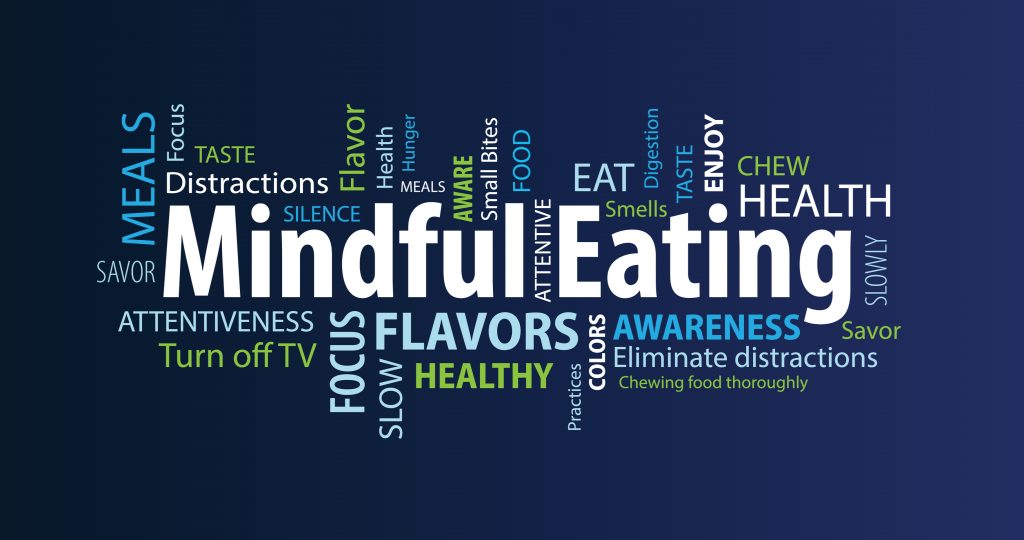Over a 6-week period, ART conducted a remote pilot study on employees to investigate individual nutrition habits with a view to understanding the impact of nutrition on individual:
- Sleep
- Cognitive performance
- Activity
- Physical and mental wellbeing
Participants were asked to complete a food diary every day for one week, perform weekly cognitive tasks and to wear/sync their smart watch daily.
Food diaries were then analyzed, and each participant was categorized into one of five nutrition profiles (Chaotic Eater, Unconscious Eater, Emotional Eater, Restrictive Eater, Intuitive Eater [1]). Following this, each employee received individual nutrition feedback from our in-house nutritionist with recommendations to implement. Participants worked on a minimum of two recommendations for four weeks and filled in a weekly check-in questionnaire.
In week five, participants repeated the process, completing a food diary, performing the cognitive tasks, and syncing their smart watches.
The objective data collected demonstrated some nutritional trends:
- Those who reported feeling tired also stated feeling stressed and tended to snack regularly on sugary foods.
- Those who felt tired relied on caffeine intake and reported feeling slightly dehydrated, whilst performing worse in decision making tasks.
- Those who reported feeling energised opted for balanced food choices, felt hydrated and rated a positive mood.
- Those who reported being well rested ate healthy snacks, felt hydrated and performed better in short-term memory tasks.
Analysis of subjective data revealed a stand-out theme of ‘Mindful Eating’. Mindful eating encourages us to gain awareness of our eating experiences. The term “mindfulness” was defined by Jon Kabat-Zinn as “paying attention in a particular way, on purpose, in the present moment, and non-judgmentally”.
Participant feedback included:
- “I am now much more conscious of what and when I am eating and drinking”
- “Recording the food, I eat highlighted patterns that could be improved”
- “I’m more mindful of what food is doing for me now”
- “Taking part in this study has made me acknowledge and appreciate that each meal is providing me with a whole host of different benefits “
- “Having to think more about the food I am about to eat has helped me make healthier choices”
- “This study has made me be aware and mindful of what food is doing for me”
- “Being present does make me feel more satisfied and enjoy my food more”
Eating mindfully means you pay attention to the foods you’re eating intentionally, and you observe how the food makes you feel without judgement. It encourages individuals to savour their food and be fully present for the eating experience. Mindfulness is a process-oriented, rather than an outcome-driven, behaviour [2].
Mindful eating aims to transform our relationship with food by focusing on the how and why of eating, encouraging a more holistic view [3]. It requires individuals to simply acknowledge and accept rather than judge. It can extend to the process of buying, preparing, and serving their food as well as eating it. Eating this way, even for just a few meals a week, can help you become more in tune with your body. This can make it easier to change your behaviour and habits towards food for the better and enjoy the improved wellbeing that comes with a healthier diet.
There are many benefits of mindful eating, for example, it encourages us to slow down and take a break from the hustle and bustle of our day. It eases stress and anxiety. It enables us to derive greater pleasure from the food we eat, as we learn to slow down and appreciate our meals and snacks more. Additionally, it makes us examine and alter our relationship with food, helping us to make healthier choices by focusing on how each type of food makes us feel after eating it.
It’s important to engage the senses – often, we eat obliviously, chewing down a meal while watching TV or looking at our phone. Mindfulness encourages us to remove those distractions and sit uninterrupted with our food and those who we are sharing the experience with. In doing so, we begin to slow down and enjoy the process. Once we focus our attention on the experience of eating, we stop getting caught up in any complicated emotions we may have around food and instead we allow ourselves to enjoy the pleasure of eating.
When we’re more aware, the mind is calmer and when the mind is calmer, we’re less prone to being frustrated or stressed and eating in an emotional way. We also have increased clarity so we’re more aware of our eating patterns and we can think more clearly about our food choices with less self-judgement. We feel more content about the way we eat and we’re more compassionate toward ourselves. This approach also improves other areas of wellbeing, as it has a positive effect on sleep, exercise, and mood.
Furthermore, this approach benefits companies as it encourages employees to experience feelings of caring and kindness towards oneself and to maintain perspective at challenging times. A mindful employee will take in what is happening in the workplace and they will approach their work and their relations with other colleagues and management in a non-judgemental manner. Paying attention to moment-to-moment experiences in an accepting way helps to decrease stress and promote productivity and efficiency in the workplace. Companies can support mindful eating by encouraging no eating at desks, taking full lunch breaks, having flexibility of lunch times to fit in with other colleagues and having email free time during lunch. Being mindful brings a kinder, gentler approach to eating and to life.
Where to start? – 7 days of Mindful Eating
- Jot down your plan – at the start of your week, jot down a quick food plan and keep it in mind whilst you’re shopping or picking up food
- Pause and reflect – halfway through your meal, take a break to check in with your body. From 1-10, how full do you feel?
- Have a seat– when you can, sit down to eat your food without multi-tasking, even if it’s just for a snack.
- Handy reminders – consider setting a reminder on your phone to eat mindfully.
- Engage your senses – the next time you’re eating, take your first bite with your eyes closed. Notice the texture, the sound of the crunch, and every delicious smell and flavour.
- Be kind to yourself – if you don’t have time or energy to approach a meal mindfully, that’s okay. Be forgiving with yourself.
- Keep practicing – like meditation, mindful eating is a skill that takes consistent practice. Keep going!
{1} Tribole E., Resch E. (2012) Intuitive Eating A Revolutionary Program That Works, (2nd ed.) St Martins Griffin New York
{2} Nelson JB. Mindful Eating:The Art of Presence While You Eat. Diabetes Spectr. 2017;30(3):171-174. doi:10.2337/ds17-0015
{3} Christian H. Jordan, Wan Wang, Linda Donatoni, Brian P. Meier, Mindful eating: Trait and state mindfulness predict healthier eating behaviour, Personality and Individual Differences, Volume 68, 2014, Pages 107-111
To find out how we can help support your employees nutritional requirements to enhance their wellbeing, please contact our Nutritionist Mary Curristin

